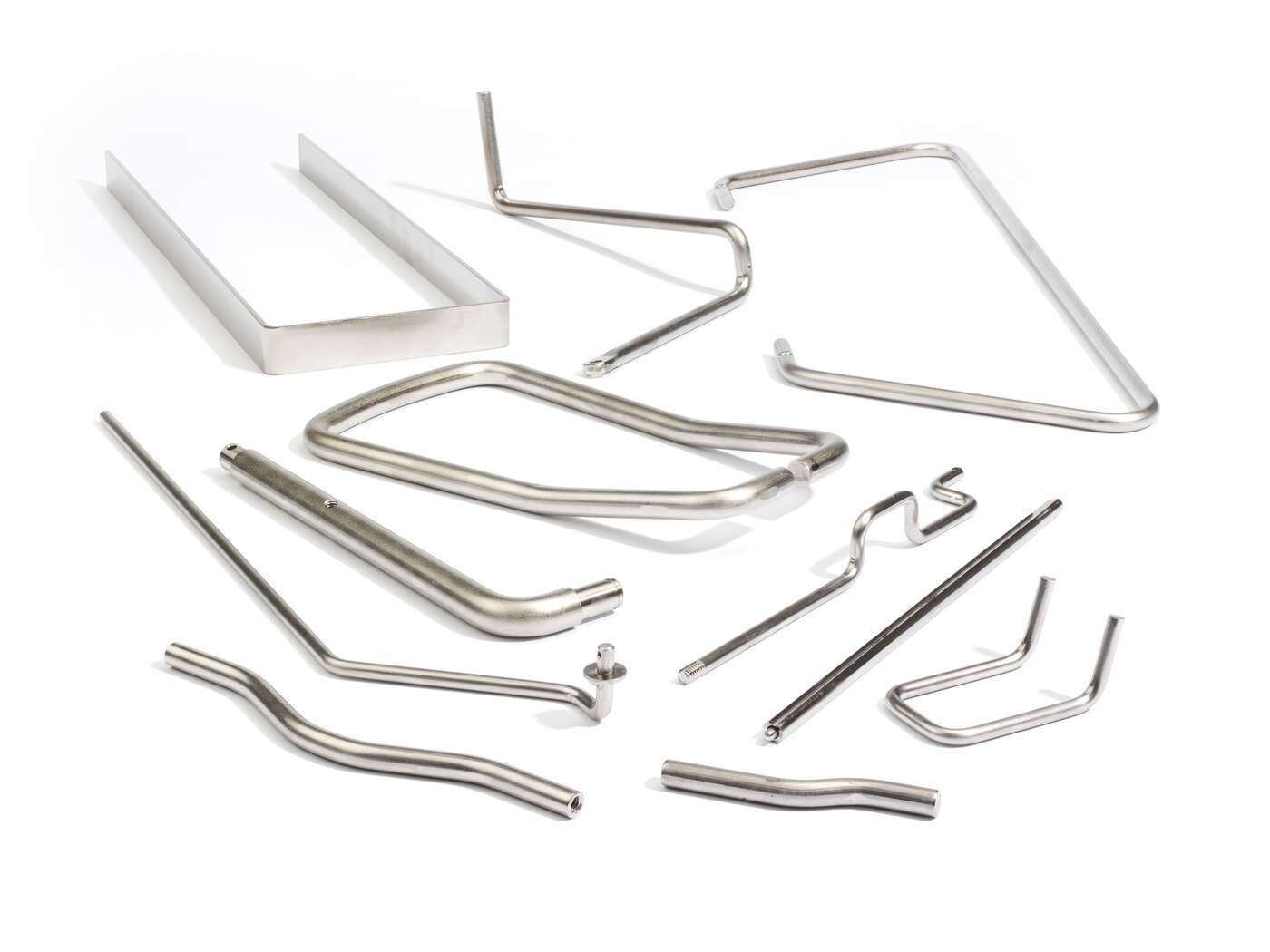For precision wire formed products, selecting the right material can be just as crucial as the product design itself. Different wire configurations (e.g. round vs. flat wire) as well as different materials (e.g. nitinol vs. music wire) can yield drastically different performance properties and product lifespans.
At Hytech Spring & Machine, we specialize in custom-engineered wire forming solutions for industries ranging from medical and aerospace to automotive and industrial applications. Many of these unique products demand specific performance characteristics, and the choice of wire material becomes crucial in achieving precise requirements in functionality and durability – not to mention cost targets.
Key Factors in Wire Forming Material Selection:
- Mechanical strength and fatigue resistance
- Corrosion resistance and environmental exposure
- Thermal and electrical conductivity
- Formability and machinability
- Regulatory compliance (especially in the medical industry and aerospace sector)
Round Wire vs. Flat Wire Forms
As the most common option, round wire is ideal for many applications that require a balance of long fatigue life, simple manufacturing, and broad material availability. It’s the go-to choice for most compression, extension, and torsion springs where space constraints are not extreme.
Flat wire excels in space-constrained designs, or applications in which higher spring rates are needed within a compact footprint. Some advanced end product examples include medical device actuators, micro-electromechanical systems (MEMS) in aerospace systems, as well as related scientific instruments and electromechanical devices for other end uses.
Learn more about the advantages of each in our previous article: Round Wire vs. Flat Wire in Micro Spring Manufacturing: Performance Properties Compared. (Note that most of the same performance properties and benefits discussed for micro springs also apply to other types of precision wire forms.)
Stainless Steel Wire Forms
As you probably expect, stainless steel alloys are some of the most common materials we use in precision wire form manufacturing. There are a variety of unique alloys and grades we can choose from to meet your specific requirements in functional performance, durability, and price.
- 302 / 304 Stainless Steel – An austenitic stainless steel offering great corrosion resistance combined with exceptional tensile strength.
- 316 Stainless Steel – Another austenitic grade offering even higher corrosion resistance than 304 stainless, at the expense of slightly less tensile strength and thermal stability.
- 434 Stainless Steel – Often used as a lower-cost alternative to 304 stainless, 434 is a ferritic alloy with less corrosion resistance, while still maintaining excellent resistance to pitting.
Nitinol Wire Forms
The main material advantage of nitinol wire is its shape memory and superelasticity. Basically, that means nitinol wire can compress or bend without damage or permanent deformation – far more effectively than conventional alloys. Nitinol is also extremely effective in forming complex shapes for unique medical devices, high-precision aerospace components, and more. With excellent resistance to fatigue and corrosion, nitinol is one of the most ideal high-performance wire forming materials when cost is not an issue.
Learn more in our previous article: Nitinol Wire Form Manufacturing: The Material Advantages of Nitinol vs. Stainless Steel.
Music Wire Forms
Music wire is one of the most common and cost-effective wire forming materials. A carbon steel alloy with high yield strength, music wire is capable of achieving high-performance functionality and outstanding reliability without the high price of nitinol or other more specialized alloys. Essentially, music wire combines high tensile strength, high ductility, and great fatigue life in an affordable package.
Learn more in our previous article: Precision Music Wire Springs: The Material Advantages of Music Wire for Custom Spring Manufacturers.
Precision Wire Forming Solutions Since 1984
Choosing the right wire forming material isn’t just about end product performance. Selecting the optimal materials often means balancing functionality, long-term reliability, and of course cost. Whether you’re developing a surgical device, an aerospace latch, or a high-reliability sensor component, Hytech Spring & Machine brings decades of experience to help you make the right material choice for your specific end product application.
